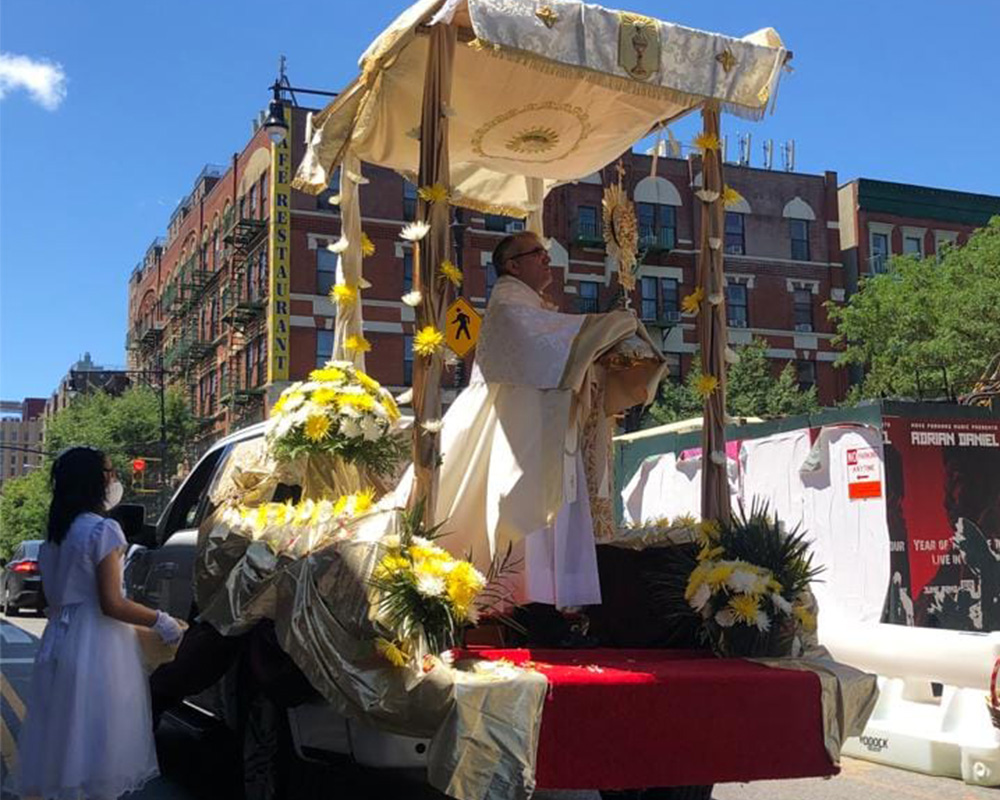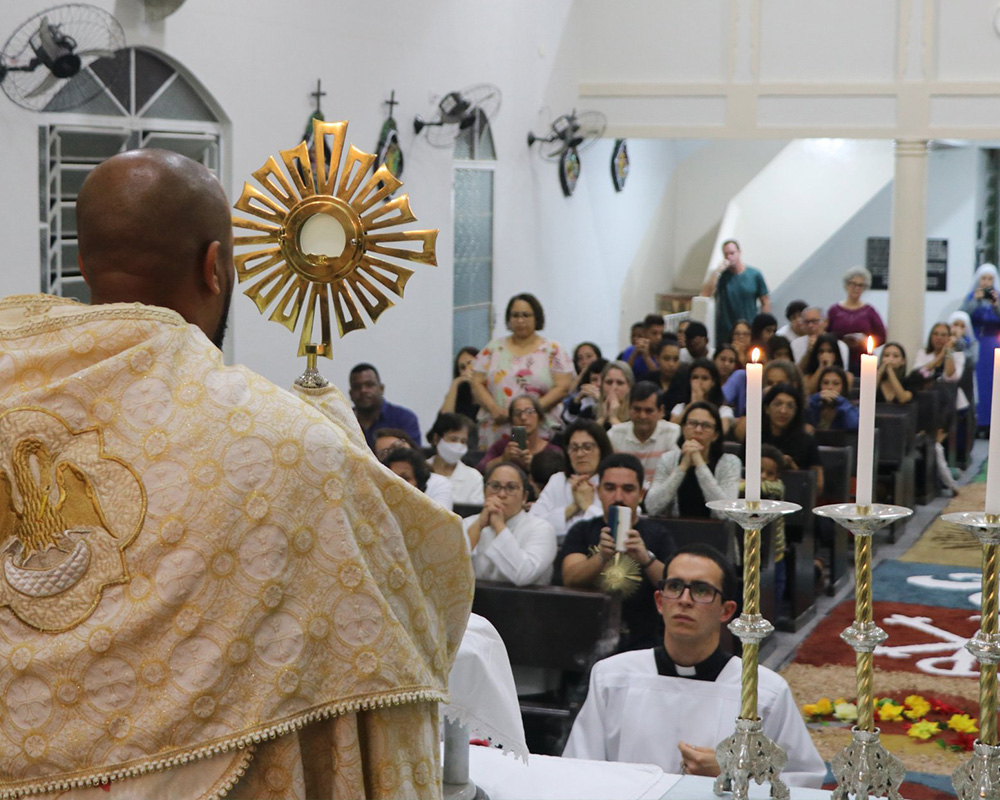Facebook
Youtube
Instagram
“The Eucharist must be one of our great loves, since it is the undeniable sign of God’s immeasurable love for men, it is the sign of a God who wants to remain among men and who gives Himself up to man totally: In the Sacrament, the logic of the Incarnation reaches its extreme consequences”
Dir. Spirituality, 300
Truly our identity as religious, the meaning and strength of our religious vocation, our mission and the very means for an effective evangelization, is found in Christ, sacramentally present in the Eucharist. That is why the Spiritual Father of our Religious Family said, “The Eucharist is at the center of the consecrated life, both for individuals and for communities. It is the daily viaticum and source of the spiritual life for the individual and for the Institute.”[1]
In the Eucharist, “the affective and dynamic center of our consecrated life and of all our communities”[2] is truly found. The same was recalled in the General Chapters: “We have to be characterized by the importance given to the celebration of the Holy Mass, as well as by the reverent way we celebrate it.”[3] “Likewise, one of our characteristics is marked Eucharistic devotion.”[4] “The Eucharist is the origin and summit of the life of the Church. […] This is why living it, celebrating it worthily, teaching Christians to participate fruitfully in it, adoring it with devotion, going more deeply into its mystery… must always be the object of our efforts.”[5]



We are called to a profound and mystical intimacy with Christ. To assure this familiar relationship with the Incarnate Word, our proper law exhorts us “to have exposition and adoration of the Blessed Sacrament for an hour each day.”[6] Because our religious life should be a prefiguration, from this present world, of that glorious future condition which will consist in the perennial and unfailing act of praise and adoration of God, contemplated without veils and tasted in the infinite sweetness of His love. From this comes our responsibility to ever more intensely and fervently nourish our spiritual life from the springs of Eucharistic piety. Let us keep this ever in mind: the Eucharist is source and summit of our whole spiritual life.
“A religious community is never more united than when they meet around the altar for the Sacrifice of the Eucharist, sign of unity.”[7] This because the Eucharist, memorial of Love, bond of charity, is at the same time the sign that produces the union and the community. Jesus Himself said: where two or three are gathered together in my name, there am I in the midst of them (Mt 18:20).
Consequently, our proper law says: “the irreplaceable and life-giving center… of each religious community”43F[8] must be Jesus in the Eucharist, since “it is around the Eucharist, celebrated or adored, that the communion of spirits is built up, a prerequisite for all growth in fraternity.”[9]
The Eucharist is one of the great loves of all the Institute’s members “since it is the undeniable sign of God’s immeasurable love for men, it is the sign of a God who wants to remain among men and who gives Himself up to man totally.”[10] So the Eucharist is for us “the school of active love for neighbor”[11] where we are educated in and impelled to exercise charity towards all.
[1] Vita Consecrata, 95.
[2] Saint John Paul II, To women religious in Milan, (May 20th, 1983).
[3] Notes from the V General Chapter, 13.
[4] Ibidem, 14.
[5] Notes from the VII General Chapter, 102.
[6] Constitutions, 139.
[7] Directory of Contemplative Life, 58.
[8] Directory of Consecrated Life, 199.
[9] Directory of Fraternal Life, 53.
[10] Directory of Spirituality, 300.
[11] Saint John Paul II, Letter on the Mystery and Worship of the Eucharist Dominicae Cenae (February 24th, 1980), 6.
Share your prayer request with religious and friends of the IVE here. You can see other prayer requests by subscribing to Resound http://iveamerica.org/#prayerrequest